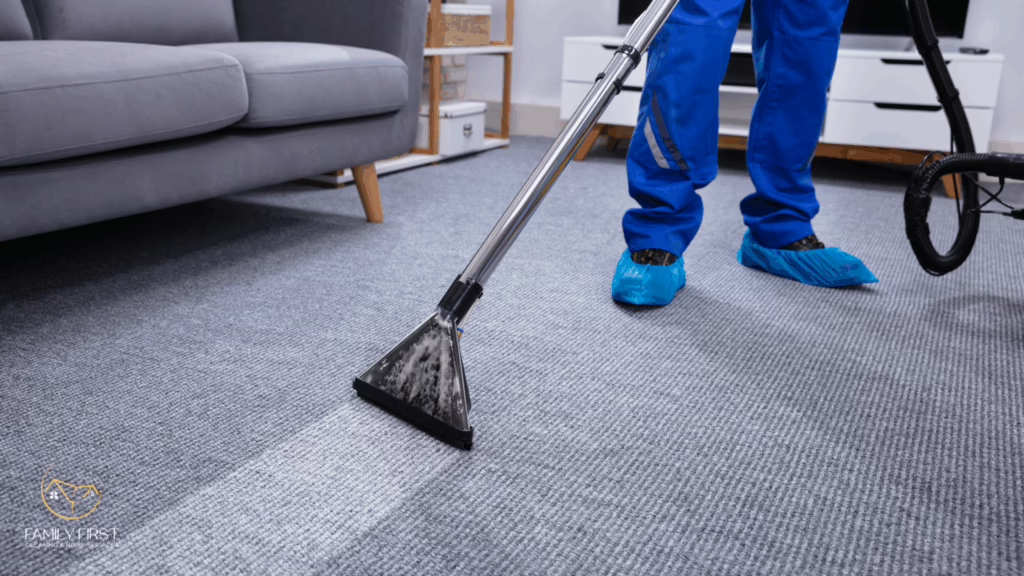If cleaning spills were as simple as grabbing a damp cloth and wiping them away, the world would be a much easier place to navigate. Yet, when it comes to tricky messes like sticky residues, mold-prone spills, or grease, water alone falls far short of being the hero we need. Ever found yourself asking, “Why didn’t you just clean the spill with water?” Well, let’s explore why that might not be the best solution.
The Illusion of Water as a Miracle Cleaner
Water is nature’s universal solvent—great for hydrating plants, diluting juice, or rinsing off dust. But for spills that invite bacteria, mold, or oils into the mix, water alone is simply not enough. In fact, relying solely on water can sometimes make matters worse.
Think about it: a sticky soda spill wiped down with just water may look clean at first glance, but beneath the surface, sugar remains—a feast for bacteria. The same logic applies to spills in fridges, on kitchen countertops, or even on floors.
Why Water Alone Isn’t the Answer
1. Water Doesn’t Kill Germs
Water may rinse away visible grime, but it doesn’t have disinfectant properties. A simple wipe with water won’t address bacteria or prevent mold growth, which thrive on moisture left behind. This is especially important in areas like the fridge, where spills often involve food residue.
2. Mold and Bacteria Love Moisture
Ironically, using only water can create a breeding ground for mold and bacteria. Residual dampness becomes the perfect environment for spores to settle and grow, turning a simple spill into a full-blown health hazard.
3. Water Doesn’t Break Down Grease or Stubborn Residues
Spills involving oils, fats, or sticky substances require more than water to dissolve. Grease repels water, leaving behind a slippery mess that’s not only unsanitary but also a safety risk.
4. Stains and Odors Persist
Water might mask odors temporarily, but without proper cleaning, those spills will leave behind lingering smells. Over time, these can infiltrate other areas, making the cleanup process even more unpleasant down the line.
Breaking the Cycle of Ineffective Cleaning
So, if water isn’t the superhero cleaner you thought it was, what’s the alternative? Thankfully, there are simple solutions that take the job from “just passable” to “sparkling clean.”
The Power of Vinegar and Baking Soda
Both natural and effective, vinegar and baking soda not only remove visible residue but also eliminate bacteria and odors. Vinegar acts as a disinfectant, while baking soda scrubs away stubborn grime.
Dish Soap to the Rescue
For spills involving grease or oils, a few drops of dish soap can cut through the mess, breaking it down at the molecular level. Pair it with warm water, and you’ve got yourself a grease-fighting duo.
Drying Matters
Whatever method you choose, drying the area is crucial. Water left to air dry can still harbor bacteria and encourage mold growth. Always follow up with a clean, dry towel.
Real-Life Scenarios: Why Water Falls Short
Let’s dive into a few situations where water alone won’t cut it:
- Fridge Spills
That leaking container of soup or milk? Cleaning it with just water leaves behind proteins and sugars that mold and bacteria feast on. A vinegar solution or baking soda scrub ensures the area is sanitized. - Greasy Countertops
Wiping up a greasy pan drip with water only smears the grease around, creating a larger mess. Dish soap is the only way to truly break down and remove the residue. - Bathroom Floors
That puddle near the sink? Water might make it disappear momentarily, but without disinfectant, it’s a germ party waiting to happen.
The Science of Clean
Water may seem like an easy solution, but cleaning is often about breaking down the structure of a mess—whether it’s grease, sugar, or bacteria. Each type of spill requires its own approach to not only remove visible residue but also sanitize the surface and prevent long-term damage or health risks.
The Professional Touch
For those dealing with more extensive spills or stubborn messes, calling in the experts can save time and ensure a thorough job. Especially if you’re juggling a busy schedule or managing multiple cleaning tasks, professional cleaning services provide the peace of mind that everything is handled correctly.
If you’re in Denver, CO, and need expert help with household cleaning, Family First offers top-notch services tailored to your needs. Whether it’s a fridge that needs a deep clean or a kitchen that’s seen better days, their housekeeping Denver CO services ensure your space stays spotless, hygienic, and stress-free.
Conclusion
Next time someone asks, “Why didn’t you just clean the spill with water?” you’ll have the answer. Water might rinse, but it doesn’t sanitize, deodorize, or truly clean. Whether it’s tackling greasy messes, mold-prone spills, or everyday accidents, a little extra effort with the right tools makes all the difference. And if life gets too hectic, you can always call in the professionals to lend a hand. After all, a truly clean home starts with doing it right!


